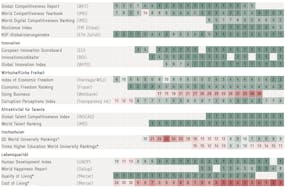Alexander Betts from the University of Oxford has been studying the fate of refugees for many years. He is particularly interested in finding the framework conditions for refugees to achieve economic independence, i.e. to make an economic contribution in their new home.
His findings show that the widespread approach in many countries of accommodating refugees in segregated accommodation tends to hinder achieving this goal. Betts points to the economic cost to society when people are not given the opportunity to use their talents and realize their hopes.
A long-term study, in which he and his team compared the migration policies of Uganda, Kenya and Ethiopia, produced some exciting data: in this group of countries, Uganda boasts the greatest successes because it guarantees refugees the right to work and freedom of movement. Both the income level of refugees and their acceptance by the indigenous population are positively influenced by this strategy.
Betts names five success factors for building an economic framework in which refugees do not only “survive” but are also able to “thrive”: political will, access to public infrastructure (e.g. transport), individual compatibility with the local labor market, the socio-cultural environment as well as the extent of external support (preferably from philanthropy or private companies).
Betts made something else clear: In western societies, the flow of refugees is often perceived as a problem between rich and poor countries, between the north and the south. That is not correct: 85 percent of the world’s refugees live in low- and middle-income countries. People who come to Europe by boat are only a small minority in the global refugee movements.














